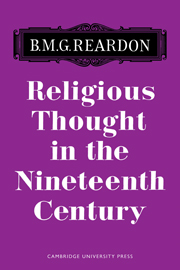Summary
Auguste Comte, originator of the positivist philosophy, is a writer today more often referred to than read. But while his more idiosyncratic notions are usually dismissed with an amused contempt the general tendency of his thought has exercised considerable if unacknowledged influence. By many of his contemporaries he was hailed as a prophet, a revealer of ultimate truths. In the eyes of his English disciple, G. H. Lewes, for example, ‘a new era’ had dawned with the appearance of the Philosophie positive. ‘For the first time in history,’ Lewes proclaimed, ‘an explanation of the World, Society and Man is presented which is thoroughly in accordance with accurate knowledge.’
The author of this all-comprehending system was born at Montpellier in 1798, entering the Paris Ecole Polytechnique in 1814. Although the school was disbanded for political reasons only two years later the young Comte remained in the capital, where he soon became a close friend of the political philosopher, Saint-Simon, whose ideas deeply impressed him. He was especially moved by the latter's demand for a new principle of spiritual cohesion in a society whose inherited political and religious traditions were in dissolution. But a breach occurred between the two men when Comte published a scheme for the reorganization of society on the basic assumption that the Revolution of 1789 had been a calamitous mistake. In 1825 he married Caroline Masson, but the union was ill-starred and brought the pair no happiness. The following year he began public lecturing on philosophy, but this congenial occupation was interrupted by a mental breakdown, although on his recovery he took it up again with unabated vigour.
- Type
- Chapter
- Information
- Religious Thought in the Nineteenth Century , pp. 196 - 207Publisher: Cambridge University PressPrint publication year: 1966

